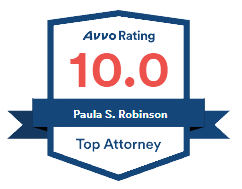Every year, on the 6th of May, we celebrate National Nurses Day to recognize and honor the enormous contribution made by nurses in promoting public health.
The Role of Nurses in Healthcare Sector
Nurses play an integral and irreplaceable role in the healthcare sector. From providing care to patients to assisting and coordinating with healthcare providers, advocating for the health and well-being of patients, and educating people on preventing illness and injuries, they perform a wide range of duties to improve patient outcomes.
Nurses play a particularly important role in providing care for individuals with disabilities and workers who suffer serious injuries on the job. The care provided by nurses to these patients goes above and beyond the administration of medications. They treat these patients with compassion and empathy, tend to their needs, and offer emotional support to help them recuperate faster.
Risk of Occupational Injuries in Nursing
Unfortunately, nurses who spend all their time caring for those who are injured or ill are also at risk of suffering injuries on the job. In fact, data shows that nurses have one of the highest injury rates in the healthcare sector. The five most common types of occupational injuries suffered by nurses include:
1. Musculoskeletal Injuries
It is no secret that many of the healthcare facilities in the country are understaffed. Nurses are forced to work long shifts and perform physically demanding tasks like patient transfers without the assistance they need. It increases the risk of musculoskeletal injuries significantly.
2. Slip and Fall Injuries
Nurses tend to spend a lot of time standing and walking, which increases the risk of slip, trip, and fall injuries.
3. Back Injuries
Nurses are often required to lift and move patients – from one bed to another or from one part of the facility to another – which is a physically demanding task. It can increase the risk of sprains and strains (particularly in the lower back) and slipped discs.
4. Cuts and Puncture Wounds
Nurses regularly handle needles, medical scissors, and other sharp tools, as a result of which they are at risk of suffering cuts and puncture wounds.
5. Exposure to Harmful Substances
Due to the nature of their job, nurses can be exposed to harmful chemicals, bodily fluids, waste and pathogens, which can cause them to develop health problems.
Compensation for Nursing Injuries
If you are a nurse who has been injured on the job, you can file a workers’ compensation claim with the help of an attorney and seek compensation for your injuries. The compensation typically covers the cost of your treatment, rehabilitation and lost wages.
It should be noted that insurance companies are known to deny even legitimate workers’ compensation claims. They are also known to undervalue the claims filed by injured workers. So, the only way to make sure you get the compensation you deserve is to let an experienced workers’ compensation attorney handle your claim.
Looking to File a Workers’ Comp Claim? Attorney Paula Robinson Can Help You!
Attorney Paula Robinson, Esq. is one of the most successful workers’ compensation lawyers in Pennsylvania. She has an in-depth understanding of workers’ compensation laws and has helped numerous injured workers – including and especially nurses – get the compensation they deserve.
Having worked for insurance companies in the past, Paula Robinson, Esq. is well aware of the strategies they use to deny and undervalue workers’ compensation claims. She can counter their arguments, gather the evidence needed to prove the extent of your injuries, and help you get the maximum possible compensation under the law.
Call our firm today at 215-530-7166 or contact us online and schedule a free consultation to discuss your case with experienced Pennsylvania workers’ compensation attorney Paula Robinson.









